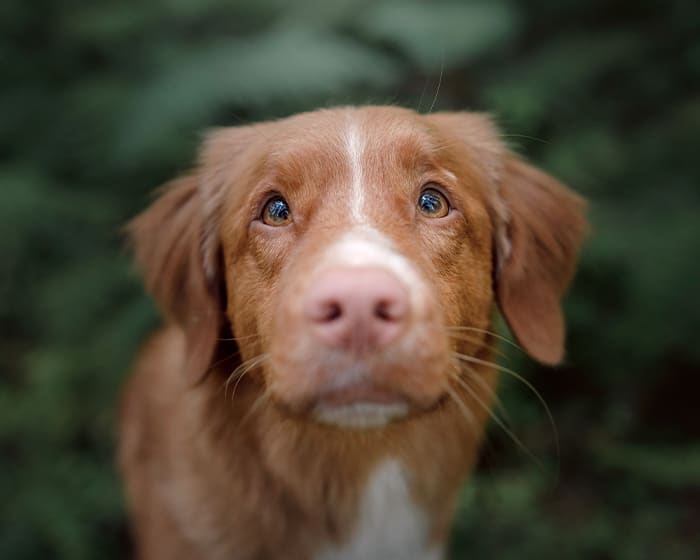Specialized Eye Care for Vienna Pets
Similar to humans, pets may experience issues with their eyes that can lead to a wide range of symptoms, from discharge, squinting and tearing to eye rubbing, red eye, cloudiness, and gradual or sudden eye loss.
Eye conditions that can potentially affect your pet range from minor to severe, and may lead to discomfort or have a long-term impact on your pet's vision. When caught early, treatment can reduce pain and preserve your pet's eyesight.
At Hope Advanced Veterinary Center, we can perform procedures to improve the health and function of the eye. We're able to diagnose and treat virtually any eye disease or condition including infections, cataracts, glaucoma, tumors, uveitis, dry eye, corneal ulcers and more.
Referrals from your primary vet are required for ophthalmology consultations.

Our Board-Certified Veterinary Ophthalmologist
Our board-certified veterinary ophthalmologist has completed extensive training after graduating veterinary school. This training focuses exclusively on treating eye disorders in animals.
During this training, an ophthalmologist is also required to complete an internship and specialized residency, pass comprehensive exams, and complete publication requirements to become board-certified by the American College of Veterinary Ophthalmologists (ACVO).
What to Expect at Your Appointment
We want your visit with our veterinary ophthalmologist to be a pleasant experience from the moment you walk through the door. When you arrive, you will be greeted by one of our receptionists who will ask you to complete our new patient forms.
Please bring any medications your pet is taking (eye, oral) to the first appointment. Recent blood tests or pertinent records should be faxed to us in advance of your visit.
- Patient History & Diagnostics
Once we have received all your information, we will bring you and your pet into an examination room and obtain a thorough history.
Initial diagnostic tests including a Schirmer tear test, applanation tonometry, and vital staining will be completed.
- Comprehensive Exam & Additional Diagnostics
The ophthalmologist will then perform a complete exam. The exam will include vision testing, slit lamp examination (biomicroscopy), and indirect ophthalmoscopy.
The ophthalmologist will then discuss with you the current ocular condition and make therapeutic and/or further diagnostic recommendations.
Other diagnostic techniques that may be performed include gonioscopy, nasolacrimal flushing, harvesting of corneal and conjunctival cells, cytology, aqueocentesis, ocular ultrasound, electroretinography, genetic testing for inherited eye disease, and blood pressure measurement.
- Discharge & Next Steps
When your visit is completed, you will be provided with discharge instructions containing a diagnosis, directions for medical therapy, and a description of the current ocular condition.
The ophthalmologist will also send your primary care veterinarian a referral letter to inform them of their findings. We strive to work with your veterinarian to provide the best comprehensive care possible.
Procedures at Hope Advanced Veterinary Center
Our trained veterinary ophthalmologist can perform procedures to improve the health and function of the eye.
These include extraocular and intraocular procedures, in addition to medical management of conditions. Your veterinarian can contact us can refer you for a consultation for any of these:
- Extraocular
Surgical correction of eyelid and eyelash defects; Tumor resection; Replacement of prolapsed 3rd eyelid gland (cherry eye); Enucleation (removal of eye) and evisceration (placement of globe prosthesis); Treatment of non-healing corneal ulcers; Laser treatment and surgery for glaucoma; Conjunctival grafts for deep or infected corneal ulcers; Direct corneal suturing for corneal laceration
- Intraocular
Laser destruction of iris cysts; Retinal laser or cryopexy for retinal tears; Cataract surgery including intraocular lens replacement; Removal of luxated lens
- Medical Management
Diseases leading to severe discomfort or blindness; Keratoconjunctivitis Sicca (KCS or dry eye); Uveitis; Glaucoma; Retinal Detachment; Optic Neuritis
